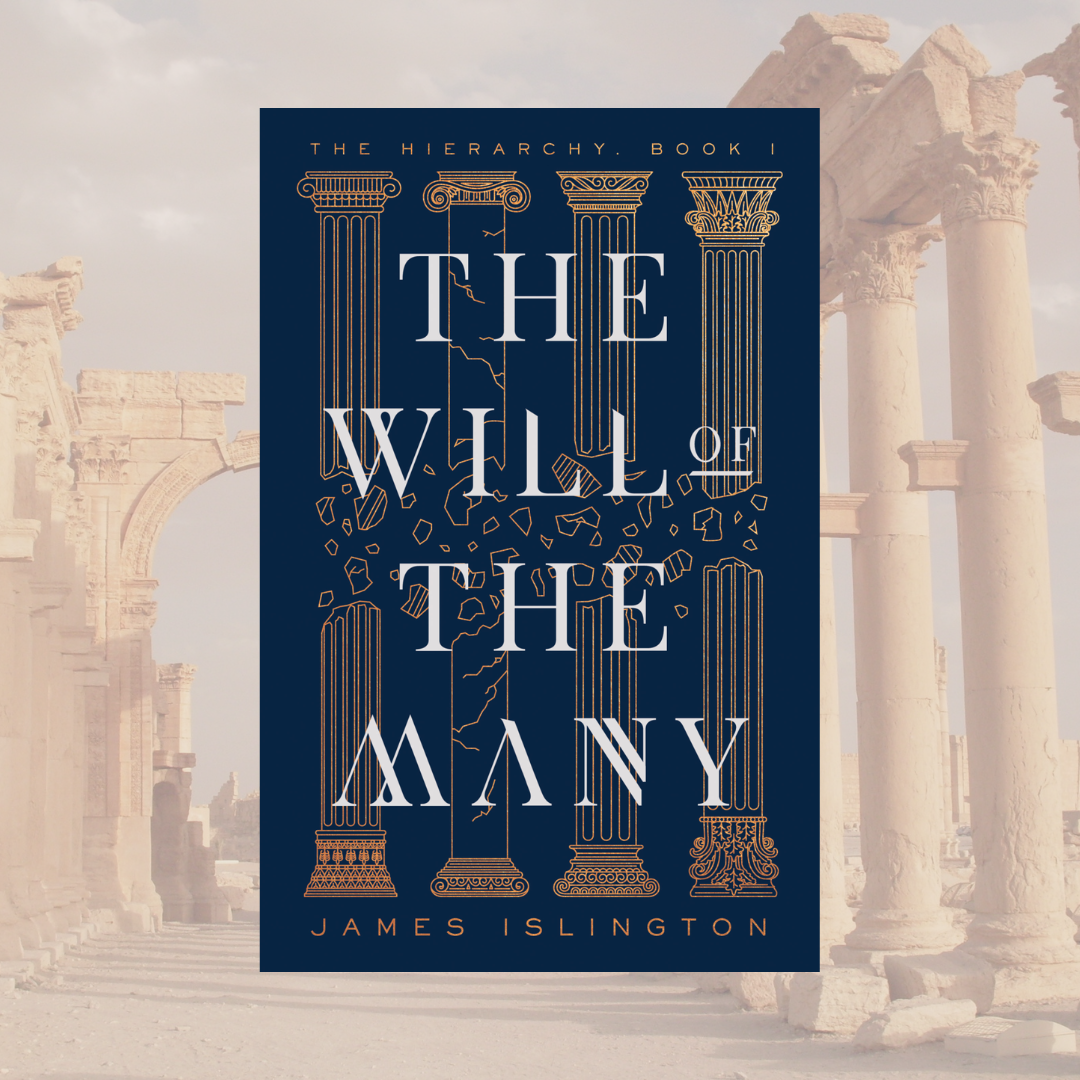Spoiler-Free Review
If you like high fantasy with highly intelligent and capable main characters, Roman-inspired worldbuilding, and hard magic systems, you need to have The Will of the Many on your list.
What’s The Will of the Many about?
Vis Telimus, a young man with a hidden past, is trying to save up for passage away from the empire that orphaned him. But then a senator uses the guise of adoption to force Vis into an elite academy for his own ends. Now Vis is suddenly mired in state secrets, and he must fight if he’s going to survive.
It kept me hooked.
“Silence is a statement, Diago. Inaction picks a side. And when those lead to personal benefit, they are complicity.”
I inhaled this book. It felt both familiar and fresh, and managed to take well-worn plot setups and turn them into something new. At the same time, it had strong themes throughout and many moral conundrums, while serving plenty of action, character growth, and breathing room for relationships to develop.
Let’s start with the worldbuilding. The Catenan Republic, aka the Hierarchy, is a Roman-inspired empire with a caste system involving “Will.” Will is lifeforce, essentially. Those at the bottom cede some of their Will to those above, sacrificing some of their own lifeforce to feed those in power. Will-users are harder to fight, harder to kill, and they can magically imbue objects to do what they want. There are eight levels to the Hierarchy. Someone on the lowest rung, an Octavus, cedes Will to those above them, and receives none. It shortens their lifespan, but is considered a necessary part of living in the empire. A Septimus receives Will from a certain number of Octavii, and then still cedes a little of that to those above them. And so on and so forth up the ladder all the way to the Princeps, who receives Will from thousands.
Vis Telimus was an extremely satisfying main character to follow. He’s not just book smart, he’s clever and cunning as well. He’s both calculated and capable of improvising on the fly. He can fight. And most importantly, he’s angry. Perhaps this aspect was relatable to me because I’m also angry, but more than that, it was satisfying because he was not easily cowed. His righteous anger was a weapon, and one he sometimes struggled to leash. I ate it up.
The empire took everything from him – his family, his homeland, his people. So his new position as an adopted son and student at a prestigious academy becomes increasingly hard for him to stomach. Attending their school, speaking their language, befriending their best and brightest. And several opposing forces all want something from him. Reading this book is a constant question of, “What’s right? What’s wrong? And what can he do about it?” I found this compelling.
I’m intrigued by the ending, though it’s certainly audacious, and it’ll be interesting to see how he continues this thread into book 2. I think he’ll have to work hard to nail it, but I have faith.
Should you read The Will of the Many?
If you’re a high fantasy fan, this should absolutely be on your list. I would recommend it to anyone who’s a fan of hard magic and worldbuilding and dense fantasy reads with evil or corrupt governments. The caste system and ceding of Will gives it a dystopian flare, if you’re into that. Plus, if you enjoy magical schools, action sequences, and plenty of side missions, you’ll love this. It has a first person POV, too.
If you liked Blood Over Bright Haven, read this one. Many fans also liked Red Rising (I haven’t read that one yet so I can’t confirm, but it’s worth noting).
This is book 1 in what I believe will be a trilogy. Book 2, The Strength of the Few, is currently slated for release in May 2025.
I would love to have you around! Subscribe below.








2 responses to “The Will of the Many (Hierarchy 1): A top read”
GREAT REVIEW! You always have a way of pulling me in and adding to my list. 😃
We’ve gotta build you up to high fantasy!